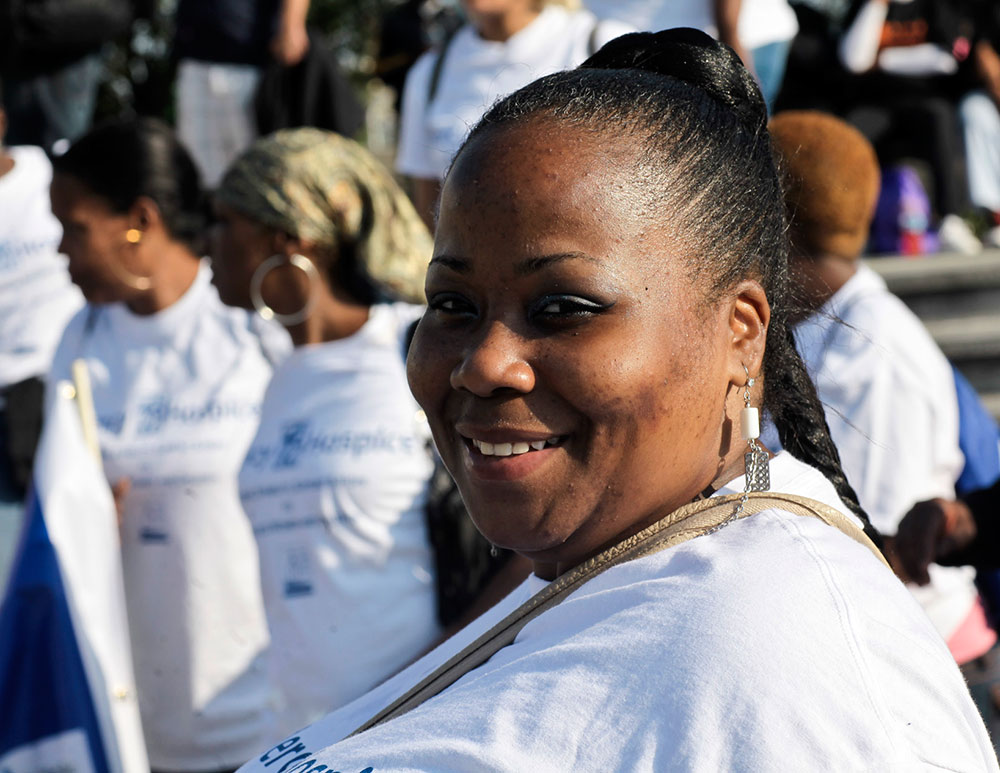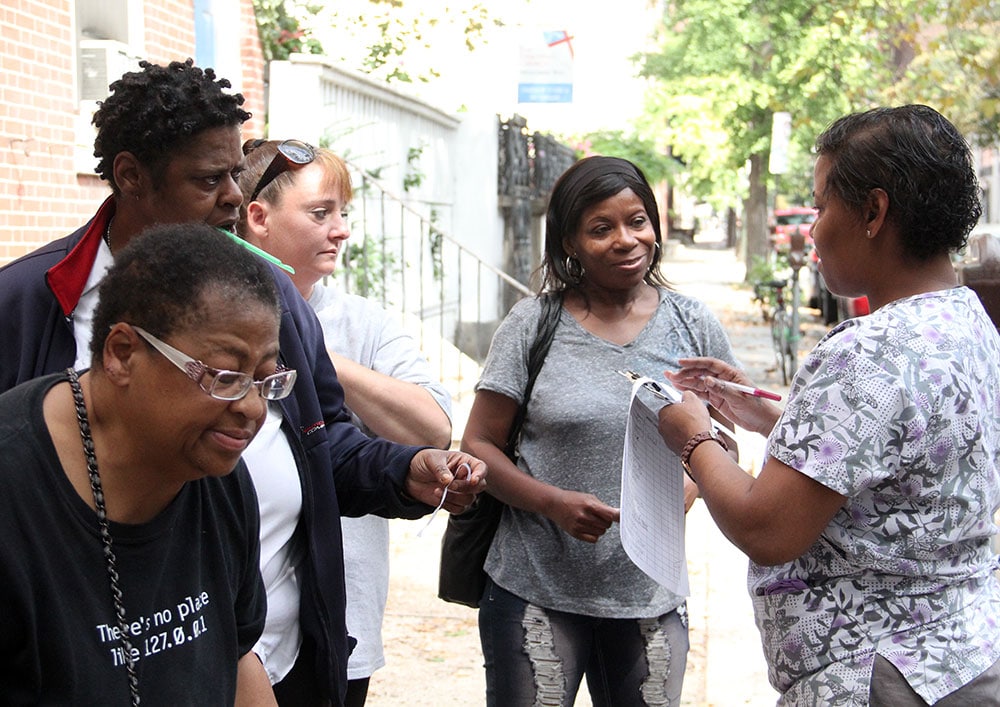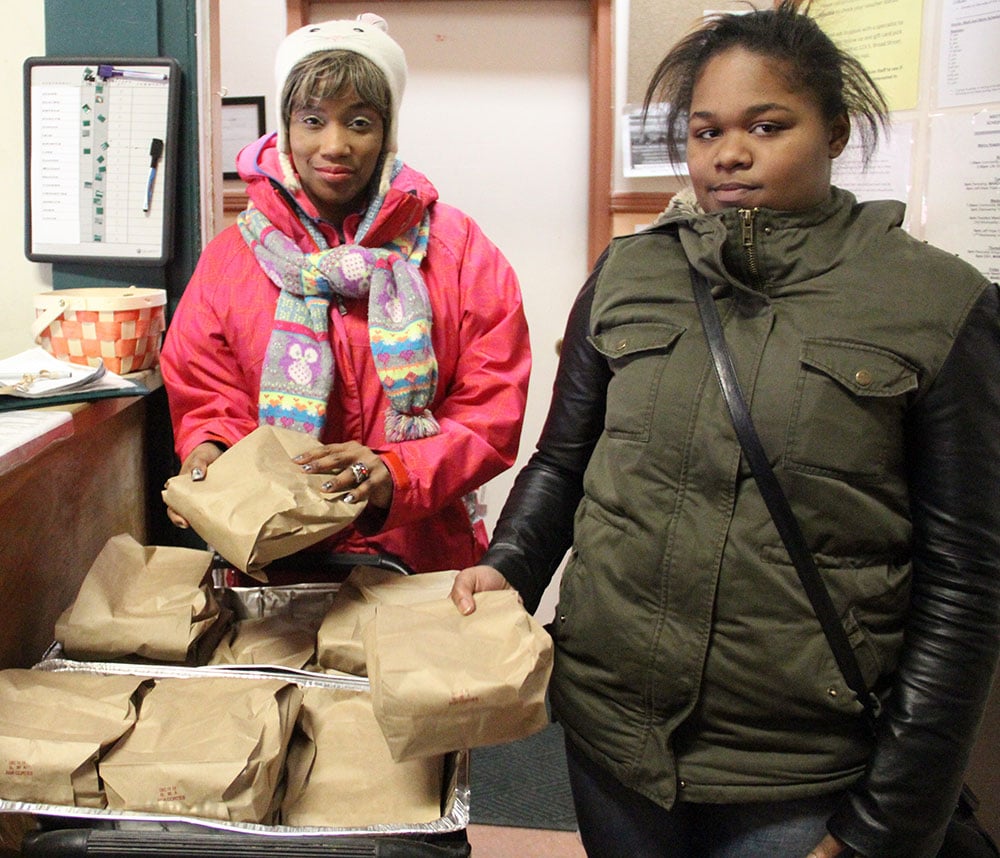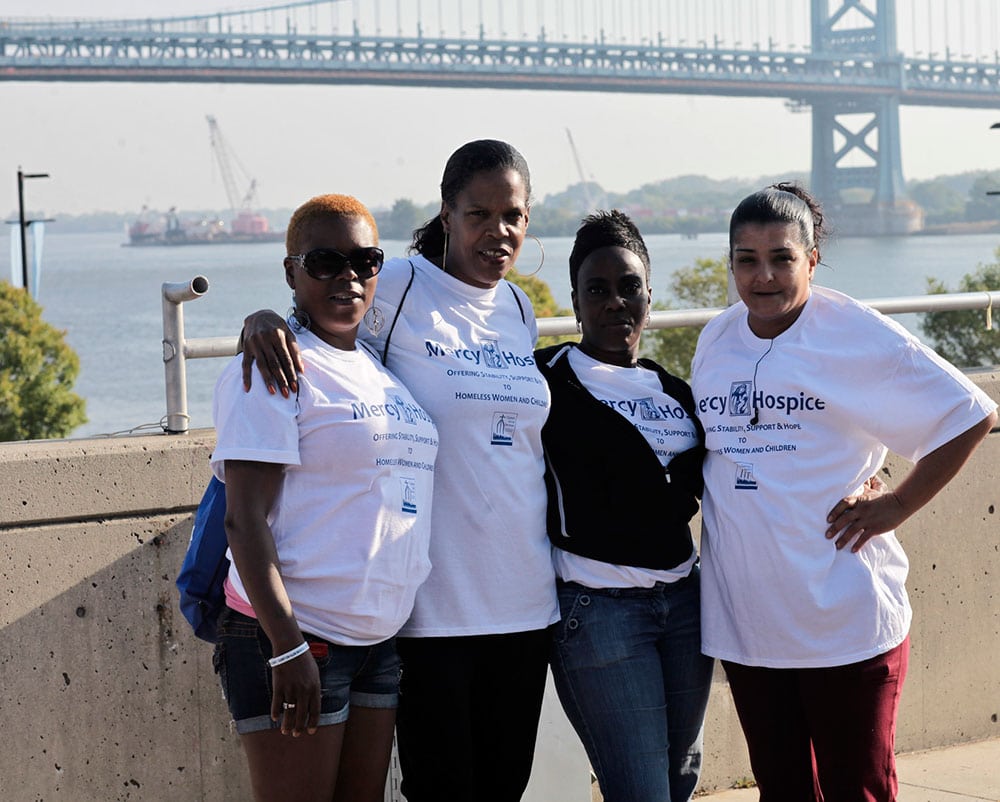IMPACT

During the 2018-2019 fiscal year, Mercy Hospice served a total of 143 residents, of these 124 were women and 19 were children. Women at Mercy attend almost daily outpatient substance abuse treatment and support programs in the community and on site. 63% of Mercy’s residents came to Mercy directly from inpatient substance abuse treatment, and 11% of residents were a part of the Forensic Intensive Recovery (FIR) program, coming to Mercy with criminal convictions, being deferred from prison or given release.
In addition to working to maintain their recovery, many of the women at Mercy Hospice are struggling with other life issues. 94% of the women who resided at Mercy last year were in need of mental health treatment. Many also struggled with not having an income or education, a lack of identification, unsatisfied utility and judgement debts, and no connection to medical and mental health care.
One of the primary functions of Mercy Hospice is to assist and support women in their search for permanent housing. In the 2018-2019 fiscal year, there were 87 clients discharged having an average length of stay of 240 days, with 51% discharged to more independent housing. In 2017-2018, there were 122 clients discharged, having an average length of stay of 150 days, with 52% of the discharges to more independent housing.
In preparation for moving towards independent housing, the case management staff assists the women with obtaining incomes and identification. They also assist with making connections to medical care, and mental health care.


At the time of intake only 44% of residents came to Mercy with an income. At the time of discharge that percentage increased to 55% with 12 women obtaining an income through employment. Cuts to General Assistance funding have made obtaining an income, even a small income increasingly difficult for Mercy residents. In preparation for moving towards independent housing, the case management staff assist the women with obtaining income and identification. They also assist with facilitating home group and sponsor connections. Having proper identification is crucial to accessing housing and many other services for the homeless. Mercy Hospice was able to assist 27 women with obtaining birth certificates, 20 with obtaining Social Security cards, and 11 with obtaining photo identification. All measures exceed the 40% benchmark set for this key area. An important aspect of maintaining sobriety and developing supports within the community is establishing a home group and sponsor. Of the women discharged from the program, 29 were connected to a home group and 41 obtained a sponsor.
For many of the women that come through the doors of Mercy, drug addiction is only one of many life challenges that they have endured. Chronic homelessness, poverty, abuse, incarceration, and many other hurts and disappointments have plagued their lives. Despite the troubled past of the residents, Mercy has been witness to many positive outcomes and successful discharges. Here are just two success stories of many:
- Ren and her one year old daughter came to Mercy Hospice with little outside support or hope for her future. She received no family support while she was trying to overcome the most trying battle in her lifetime. In addition to having little outside supports, Ren was a mom that was on Methadone that strived to not engage in the “pill culture” that seems to be embedded with those that are on Methadone. Ren remained diligent in only surrounding herself with peers that were committed to their recovery process. Ren’s case manager continued to support Ren and ensured she was connected to supports that would assist her with maintaining long-term recovery. In an effort to not succumb to behaviors that are not consistent with recovery, Ren enrolled in a program that would enable her to receive her high school diploma. Though it took a lot of advocacy on behalf of Ren and her case manager, Ren finally received permanent housing for her and her daughter. Ren left the program with a strong recovery support system, stable housing, and a few classes away from receiving her high school diploma. After a recent follow-up, we learned that Ren continues to flourish as both a mother and a person in recovery!
- Throughout most of Mary’s adult life, she suffered from ongoing substance abuse challenges and prominent mental health concerns. Prior to entering Mercy Hospice, Mary frequented City shelters and various unfunded recovery house programs. Mary also mentioned she was a Mercy Café (lunch for the homeless) day guest for a number of years, prior to becoming a resident at Mercy. Mary experienced years of street homelessness. Due to chronic homelessness and mental health vulnerability, Mary was often subjected to being taken advantage of financially. Therefore, she was unable to maintain a place of her own. Upon entering Mercy, Mary was string in her recovery efforts. She attended weekly outpatient groups, Narcotic Anonymous meetings, and maintained a strong relationship with her peers and professional supports. However, Mary seemed discouraged and downtrodden about finding stable housing due to years of empty promises. Mercy staff assisted and took time to submit numerous housing application, as a result Mary received permanent support housing. For the first time in her 57 years of life, Mary finally has a place to call home. Mercy staff assisted Mary with obtaining ongoing case management services and recovery support services to ensure long-term stability with both her recovery needs and housing support. Mary is finally obtaining peace and stability in her life which is by far the greatest accomplishment.

